
Texel Island: The Gem of the Dutch Wadden Sea
Texel Island, the largest of the Dutch Wadden Sea islands, is a haven for nature lovers and adventure seekers alike. With its pristine beaches, lush greenery, and quaint villages, Texel offers a unique blend of relaxation and exploration. The island’s diverse landscapes are perfect for cycling, hiking, and bird-watching, making it a paradise for outdoor enthusiasts. Texel’s charming villages, such as Den Burg and De Koog, provide a glimpse into local life with their traditional Dutch architecture, cozy cafes, and vibrant markets. The island is also home to several museums, such as the Ecomare, where visitors can learn about the Wadden Sea ecosystem and its marine life. Don’t miss the Texel Lighthouse, which offers breathtaking panoramic views of the island and the surrounding sea. For those interested in local culture, Texel hosts various festivals and events throughout the year, including the famous Texel Culinair, a food festival celebrating the island’s culinary delights. Seafood lovers will particularly enjoy the fresh fish and shellfish dishes that are a staple of Texel’s cuisine. Whether you’re looking to unwind on the beach, explore scenic trails, or immerse yourself in local culture, Texel Island has something for everyone.
Local tips in Texel Island
- Rent a bicycle to explore the island’s extensive network of cycling paths.
- Visit the Sunday market in Den Burg for local crafts and fresh produce.
- Check the tidal schedules if you plan to explore the mudflats.
- Bring binoculars for bird-watching at the De Slufter nature reserve.
- Try the local specialty, Texel lamb, at one of the island’s many restaurants.
Texel Island: The Gem of the Dutch Wadden Sea
Texel Island, the largest of the Dutch Wadden Sea islands, is a haven for nature lovers and adventure seekers alike. With its pristine beaches, lush greenery, and quaint villages, Texel offers a unique blend of relaxation and exploration. The island’s diverse landscapes are perfect for cycling, hiking, and bird-watching, making it a paradise for outdoor enthusiasts. Texel’s charming villages, such as Den Burg and De Koog, provide a glimpse into local life with their traditional Dutch architecture, cozy cafes, and vibrant markets. The island is also home to several museums, such as the Ecomare, where visitors can learn about the Wadden Sea ecosystem and its marine life. Don’t miss the Texel Lighthouse, which offers breathtaking panoramic views of the island and the surrounding sea. For those interested in local culture, Texel hosts various festivals and events throughout the year, including the famous Texel Culinair, a food festival celebrating the island’s culinary delights. Seafood lovers will particularly enjoy the fresh fish and shellfish dishes that are a staple of Texel’s cuisine. Whether you’re looking to unwind on the beach, explore scenic trails, or immerse yourself in local culture, Texel Island has something for everyone.
When is the best time to go to Texel Island?
Iconic landmarks you can’t miss
TESO Ferry Port
Experience the beauty and culture of Texel Island by taking the TESO Ferry from Den Helder—your gateway to adventure and natural wonders.
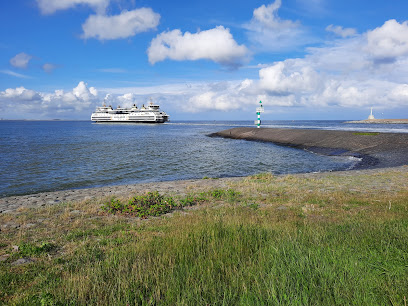
Ecomare
Explore the wonders of the Wadden Sea at Ecomare, a fascinating aquarium and nature museum dedicated to marine life and wildlife rescue.
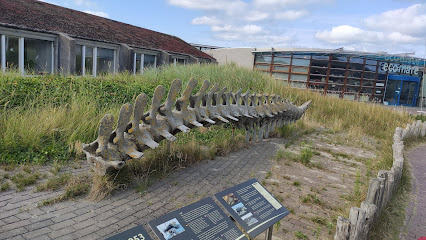
Lighthouse Texel
Explore Lighthouse Texel, a historical gem on Texel Island, offering breathtaking views and rich maritime history in one stunning location.
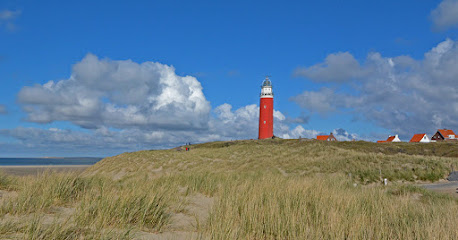
Nationaal Park Duinen van Texel
Explore the breathtaking landscapes of Nationaal Park Duinen van Texel, where nature, wildlife, and adventure meet on the stunning Dutch coast.
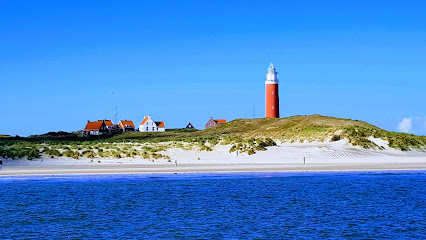
Strandpaviljoen Paal 17 Aan Zee
Experience the essence of coastal living at Strandpaviljoen Paal 17 Aan Zee, where beach relaxation meets delightful culinary experiences.
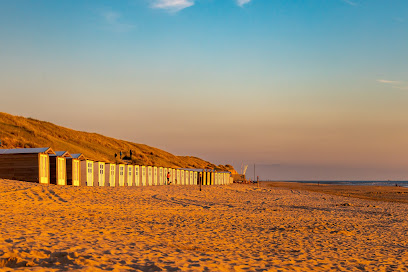
De Krim Texel
Discover the ultimate escape at De Krim Texel, a holiday park blending nature, comfort, and adventure on the beautiful Texel island.
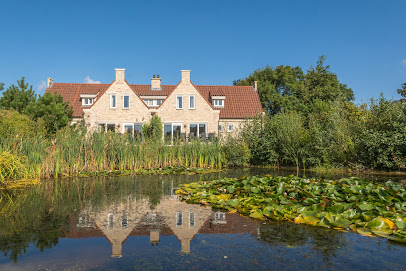
Landal Sluftervallei
Experience the serene beauty of Landal Sluftervallei, a holiday park in De Cocksdorp, perfect for nature lovers and families seeking adventure and relaxation.
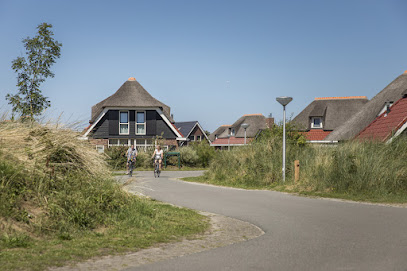
Museum Kaap Skil
Discover the maritime history of the Netherlands at Museum Kaap Skil, featuring captivating exhibits and artifacts from the depths of the sea.
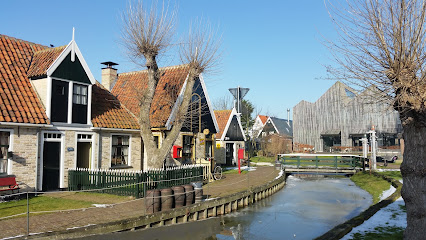
Shipwreck and Beachcombing Museum Flora
Discover the maritime history of the Netherlands at the Shipwreck and Beachcombing Museum Flora in De Koog, a must-visit for tourists seeking adventure and learning.
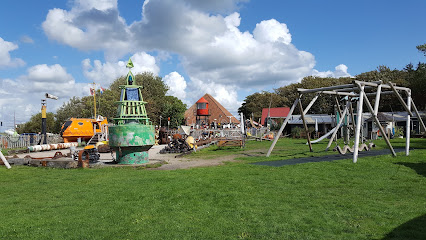
Strandpaviljoen Paal 19
Experience the beauty of the North Sea at Strandpaviljoen Paal 19—a beach pavilion that offers delicious cuisine and stunning ocean views.
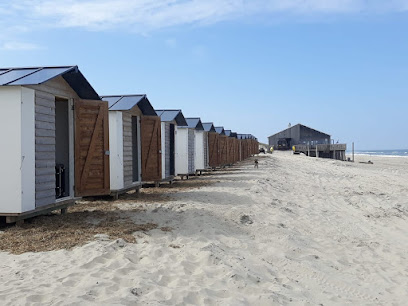
Beach Pavillion Paal 20
Experience the beauty of De Koog at Beach Pavilion Paal 20, where delicious cuisine meets stunning seaside views in a relaxed atmosphere.
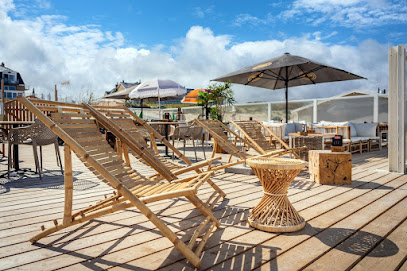
Texel Sheep Farm
Discover the enchanting Texel Sheep Farm, where families can enjoy playful sheep, engaging activities, and a delightful playground in a stunning countryside setting.

TexelZoo
Experience the beauty and diversity of wildlife at TexelZoo, the perfect family-friendly destination on Texel Island.
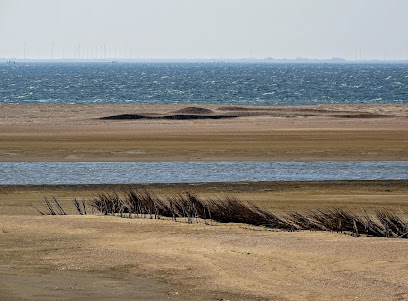
Voedselbos Texel
Experience the lush landscapes and culinary delights of Voedselbos Texel, a unique food forest on the stunning island of Texel, Netherlands.
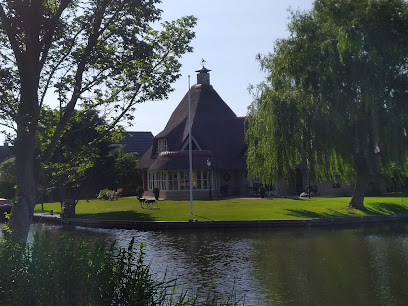
Stayokay Hostel Texel
Experience the vibrant community and stunning landscapes at Stayokay Hostel Texel, your ideal base for exploring the beautiful island of Texel.

Unmissable attractions to see
Ecomare
Discover the wonders of the Wadden Sea at Ecomare, where marine life, conservation, and education come together in a captivating experience.
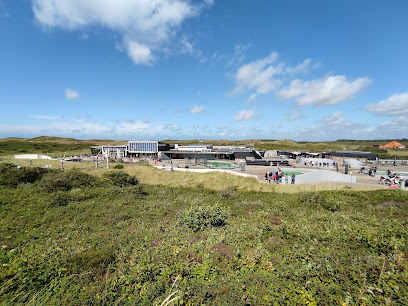
Nationaal Park Duinen van Texel
Experience the breathtaking landscapes and rich biodiversity of Nationaal Park Duinen van Texel, a must-visit national park for nature lovers in the Netherlands.
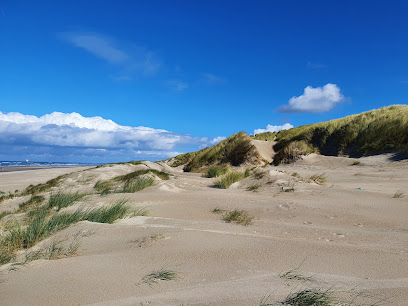
Museum Kaap Skil
Discover the maritime heritage of the Wadden Islands at Museum Kaap Skil, a captivating heritage museum in Oudeschild.

Shipwreck and Beachcombing Museum Flora
Uncover maritime history and beach treasures at the Shipwreck and Beachcombing Museum Flora in De Koog, a unique experience for curious travelers.
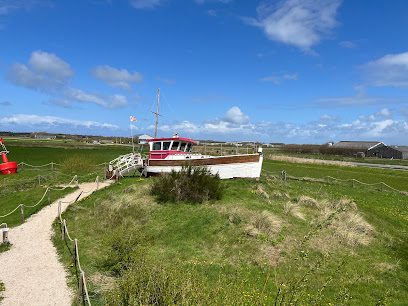
Beach Pavillion Paal 20
Experience the perfect blend of relaxation and culinary delight at Beach Pavilion Paal 20 on the stunning Texel coast.
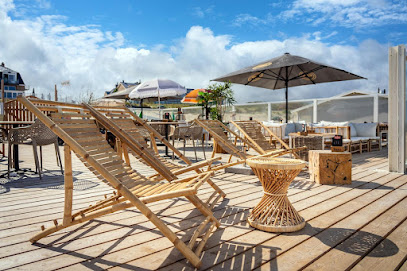
TexelZoo
Experience the charm of TexelZoo in Oosterend, where small animals come to life in a serene and educational setting for the whole family.

Voedselbos Texel
Experience the harmony of nature and agriculture at Voedselbos Texel, a unique farm and tea house in Oudeschild, Netherlands, perfect for food lovers and nature enthusiasts.

Watchtower Fonteinsnol
Visit the Watchtower Fonteinsnol in Den Burg for breathtaking views and a glimpse into the rich maritime history of the region.
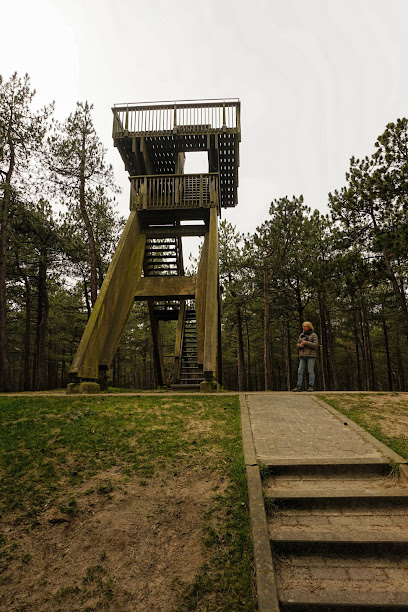
Aviation & War Museum Texel
Discover the fascinating history of aviation and wartime events at the Aviation & War Museum Texel, an engaging experience for all ages.

Sommeltjespad
Explore the breathtaking Sommeltjespad hiking trail on Texel, where nature, tranquility, and adventure await every visitor.
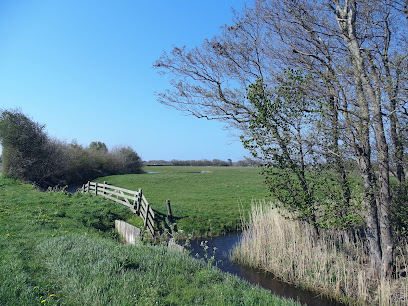
IJzeren zeekaap
Discover the IJzeren Zeekaap, an iconic iron sea beacon in Oosterend, offering breathtaking views and a glimpse into maritime history.

Oosterend Texel
Experience the tranquil beauty and rich cultural heritage of Oosterend Texel, a charming village perfect for your next getaway.
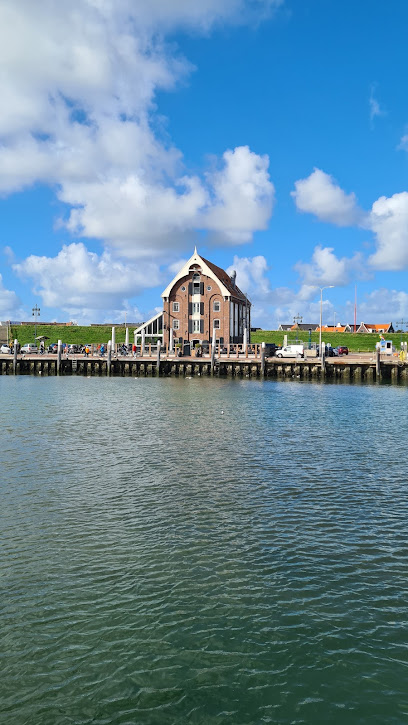
Church Den Hoorn
Explore the serene beauty of Witte Kerkje in Den Hoorn, a must-visit Reformed church and cultural landmark on Texel Island.
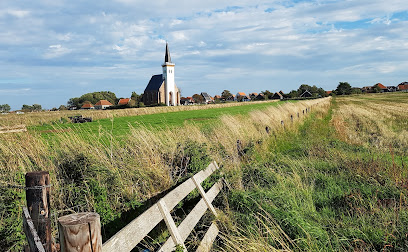
High Mountain Texel
Explore High Mountain Texel, a scenic nature preserve in Den Burg, offering breathtaking landscapes and diverse wildlife for nature enthusiasts.

Texels erfgoedmuseum Waelstee
Explore the cultural and historical essence of Texel Island at Texels Erfgoedmuseum Waelstee, a captivating museum for curious travelers.

Essential places to dine
Strandpaviljoen Paal 17 Aan Zee
Discover Strandpaviljoen Paal 17 Aan Zee - A scenic beach pavilion offering delightful dining experiences with breathtaking ocean views.
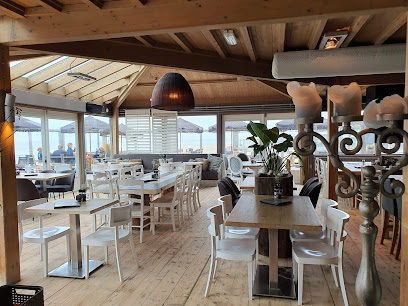
Beach Pavillion Kaap Noord
Experience breathtaking coastal views and exquisite dining at Beach Pavilion Kaap Noord - your ultimate seaside retreat.
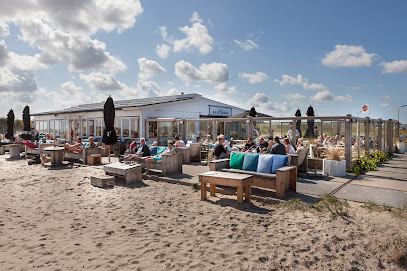
Café-Restaurant De Slufter
Experience delightful dining at Café-Restaurant De Slufter in De Cocksdorp - where local flavors meet stunning views.

Strandpaviljoen Paal 28
Discover Strandpaviljoen Paal 28 – a family-friendly beach pavilion offering delightful dining experiences with stunning ocean views in De Cocksdorp.
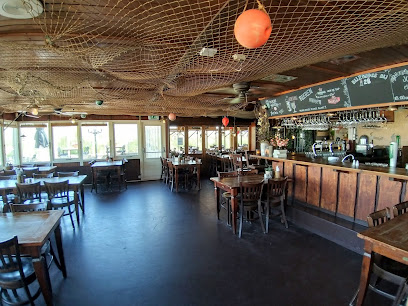
Catharinahoeve
Experience authentic Dutch cuisine at Catharinahoeve on Texel Island – where local ingredients meet culinary excellence.
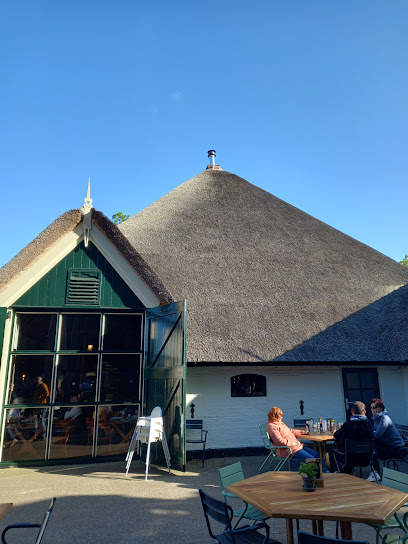
Gastro Pavillion XV
Discover the culinary delights at Gastro Pavillion XV in Texel, where local flavors meet stunning views for an unforgettable dining experience.
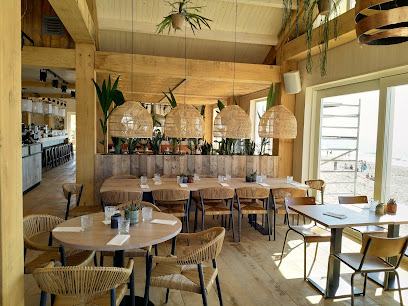
Hotel De Lindeboom
Discover comfort and gourmet dining at Hotel De Lindeboom in Den Burg – your gateway to Texel's beauty.

Grieks Restaurant Yamas!
Experience authentic Greek flavors at Yamas! in De Koog - where every meal is a journey through Mediterranean culinary delights.
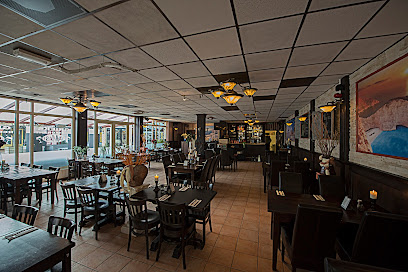
Pannenkoekenhuis Klif 23
Experience the authentic taste of Dutch pancakes at Pannenkoekenhuis Klif 23 in Den Hoorn Texel - where every bite tells a story.
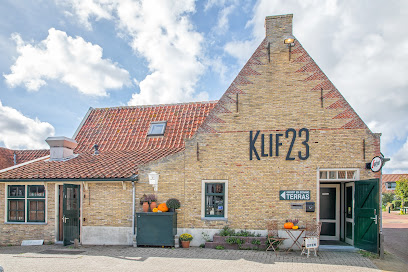
Restaurant De Kombuis
Discover authentic Dutch cuisine at Restaurant De Kombuis in Oudeschild, where local flavors meet stunning harbor views.

Bar & Restaurant Eigeweis!
Discover authentic Dutch cuisine at Bar & Restaurant Eigeweis in De Koog – a must-visit culinary destination for every traveler.

Pollo
Discover Pollo in De Koog – where exquisite chicken dishes meet charming ambiance for an unforgettable dining experience.
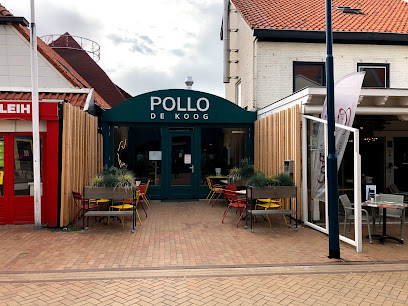
Strandpaviljoen Paal 12
Experience coastal dining at Strandpaviljoen Paal 12 with fresh seafood, stunning views, and inviting atmosphere in Den Burg.
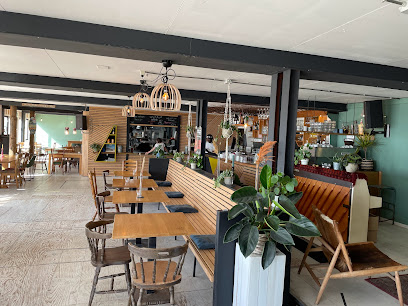
Sjans
Discover the flavors of Texel at Sjans - where cozy dining meets local culinary excellence.
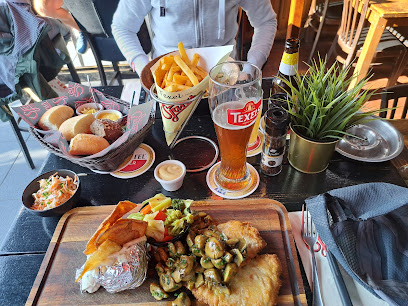
De Stal Texel
Experience the authentic flavors of Texel at De Stal Texel, where local ingredients meet culinary creativity in a cozy setting.

Markets, malls and hidden boutiques
De Oude Vismarkt van Texel
Experience the freshest seafood and vibrant market atmosphere at De Oude Vismarkt van Texel, a must-visit destination for food lovers.

Pier 53
Explore Pier 53 in De Cocksdorp for unique home goods, fashionable clothing, and delightful souvenirs that embody the charm of Texel.
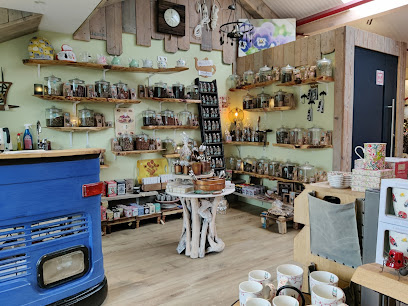
Texelse Branding
Explore Texelse Branding in Den Burg for an unforgettable coffee experience with delicious baked goods and a cozy atmosphere.
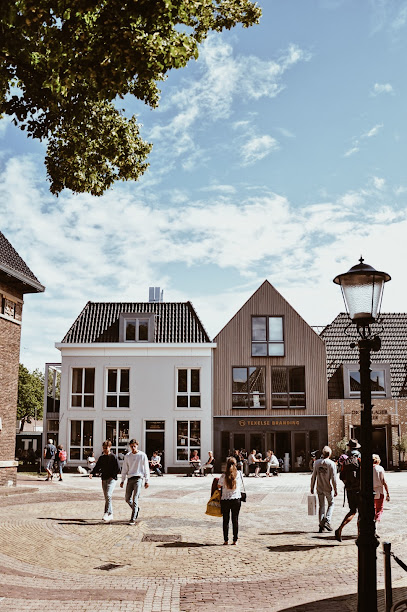
Action
Explore Action Gift Shop in Den Burg for a delightful shopping experience filled with gifts, DIY supplies, and unique home goods.

The Texel Chocolaterie
Discover the sweetest experience in Den Burg at The Texel Chocolaterie, where artisanal chocolates delight every palate.

HEMA Den Burg
Explore HEMA Den Burg for an exceptional shopping experience featuring clothing, toys, and delicious café treats in a charming Dutch setting.

Mantje Texel
Discover unique fashion and footwear at Mantje Texel, your go-to shopping destination in Den Burg on the beautiful island of Texel.
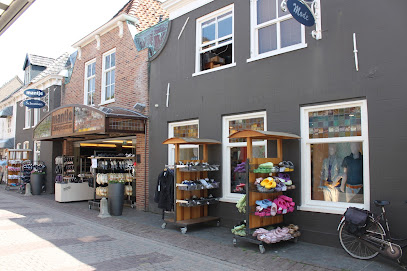
The competitor
Discover unique Texel souvenirs and stylish clothing at The Competitor, a charming gift shop in De Cocksdorp, perfect for all visitors.
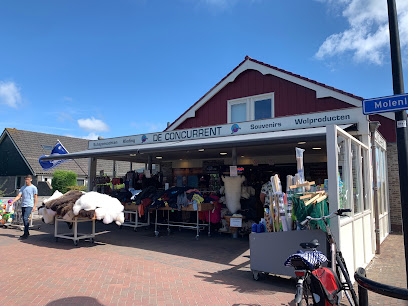
Texel Vliegerhuis
Explore Texel Vliegerhuis - Your Ultimate Destination for Kites and Outdoor Fun on Texel Island.

Kees de Waal
Explore Kees de Waal, a charming home goods store in Den Burg offering unique items and local craftsmanship for your perfect getaway souvenirs.
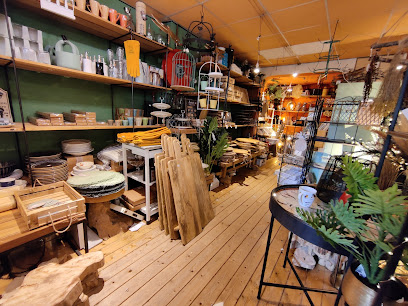
Voordeelland
Explore Voordeelland in Oudeschild for unique gifts, local specialties, and a delightful shopping experience to remember your trip to the Netherlands.

Zilt & Zo Lifestyle
Explore Zilt & Zo Lifestyle in De Koog for unique home goods and local gifts that embody the spirit of Texel.
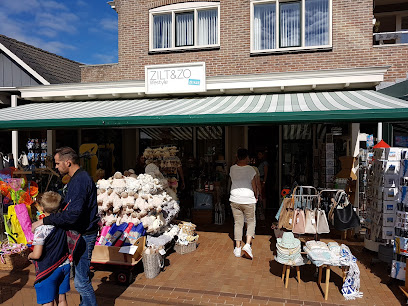
Texelana
Explore Texelana in Den Burg for trendy clothing and unique local fashion pieces that capture the spirit of your travels.

STEK conceptstore
Discover unique local crafts and design at STEK Conceptstore in Den Burg, a treasure trove for tourists seeking authentic Dutch souvenirs.

De Schapenboet op Texel
Explore De Schapenboet in Den Burg, Texel - your go-to store for unique wool and sheep-related products that embody the island's charm.
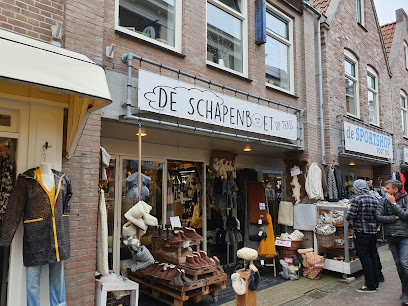
Essential bars & hidden hideouts
Café-Restaurant De Slufter
Discover the culinary delights of Café-Restaurant De Slufter, where local flavors meet a cozy atmosphere in the heart of De Cocksdorp.
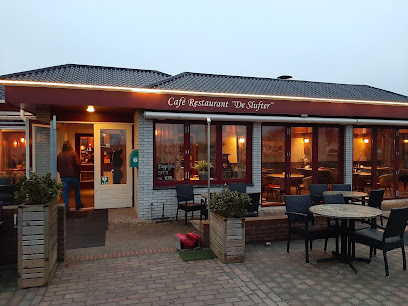
De Smulpot
Experience the culinary delights of De Smulpot in Den Burg, where local flavors meet an inviting atmosphere for an unforgettable dining experience.

Brasserie Quinty's
Experience the delightful flavors of Brasserie Quinty's in De Koog, where fresh ingredients meet a warm, inviting atmosphere for every occasion.

Taveerne De Twaalf Balcken
Experience the vibrant atmosphere and delightful cuisine at Taveerne De Twaalf Balcken, Den Burg's must-visit bar and bistro.

T cafeetje
Discover the cozy charm of T Cafeetje in Oosterend, a delightful bar and restaurant offering local flavors and warm hospitality.

Gastro Pub MANS
Discover the unique flavors of Den Burg at Gastro Pub MANS, where local culinary traditions meet a warm and inviting atmosphere.
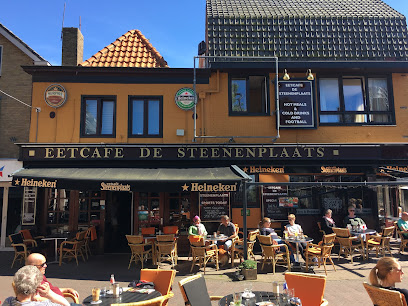
Sjans
Experience the best of Texel's culinary scene at Sjans, a cozy restaurant and café in De Koog, serving delicious local flavors.
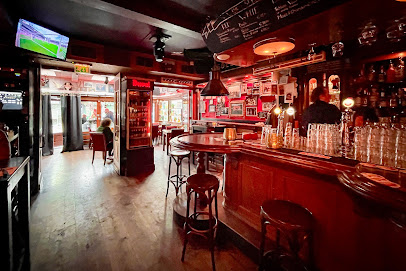
De Stal Texel
Experience authentic Texel flavors at De Stal Texel, where local ingredients meet culinary creativity in a cozy setting.
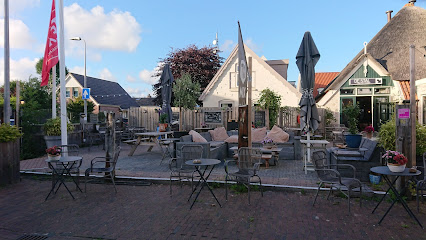
Oudeland Texel
Experience exquisite dining and fine wines at Oudeland Texel, a culinary masterpiece on the beautiful island of Texel.
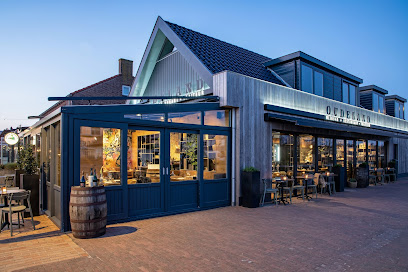
Texelse Branding
Experience the rich flavors of Den Burg at Texelse Branding, a cozy coffee shop known for its artisanal brews and delicious baked goods.
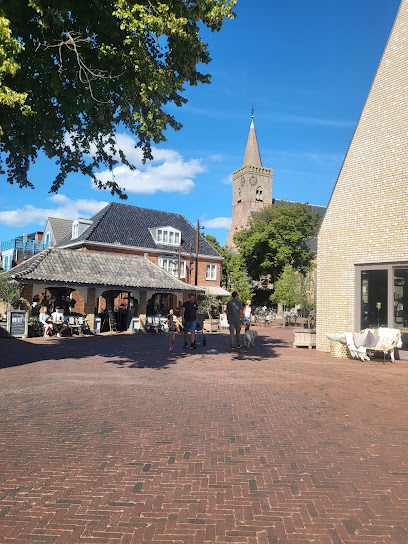
the Slock
Experience the heart of Texel's pub culture at The Slock, Den Burg's cozy haven for locals and visitors alike.

De Coninck van Poolen
Experience the rich flavors of Den Burg at De Coninck van Poolen, where fresh, local ingredients meet delightful culinary creations.

Casa Molero Bar de Tapas
Experience the authentic flavors of Spain at Casa Molero, a premier tapas bar in Den Burg, known for its vibrant atmosphere and delectable dishes.

Proeflokaal Onder de Pomp
Experience local charm at Proeflokaal Onder de Pomp, a cozy pub in De Koog offering a wide selection of drinks and a taste of local culture.

Whiskybar Restaurant Het Kompas
Experience the best of Texel's culinary scene at Whiskybar Restaurant Het Kompas, where exquisite grilled dishes meet an extensive whisky selection.
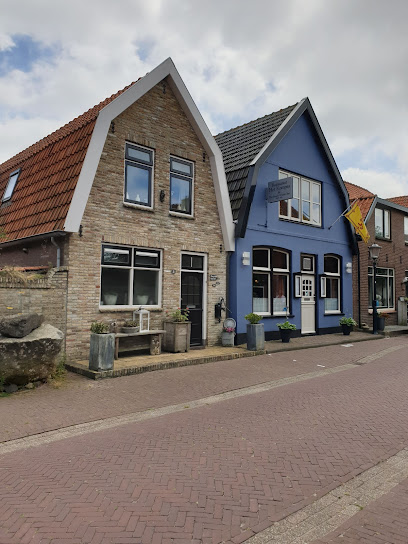
Local Phrases about Texel Island
-
- HelloHallo
[ha-lo] - GoodbyeTot ziens
[tot zeens] - YesJa
[ya] - NoNee
[nee] - Please/You're welcomeAlstublieft
[al-stu-bleeft] - Thank youDank je
[dank ye] - Excuse me/SorrySorry
[so-ree] - How are you?Hoe gaat het met jou?
[hu gat hut met yow] - Fine. And you?Goed. En met jou?
[good. en met yow] - Do you speak English?Spreek je Engels?
[sprake ye engels] - I don't understandIk begrijp het niet
[ik buh-grayp hut neet]
- HelloHallo
-
- I'd like to see the menu, pleaseIk wil graag de menukaart zien, alstublieft
[ik vil hraag duh menu-kart zeen, al-stu-bleeft] - I don't eat meatIk eet geen vlees
[ik eet kheyn vlays] - Cheers!Proost!
[prohst] - I would like to pay, pleaseIk wil graag betalen, alstublieft
[ik vil hraag buh-tah-luhn, al-stu-bleeft]
- I'd like to see the menu, pleaseIk wil graag de menukaart zien, alstublieft
-
- Help!Help!
[help] - Go away!Ga weg!
[ha vekh] - Call the Police!Bel de Politie!
[bel duh poh-lee-see] - Call a doctor!Bel een dokter!
[bel ayn dok-tuhr] - I'm lostIk ben verdwaald
[ik ben vuhr-dwahld] - I'm illIk voel me ziek
[ik fuhl muh ziek]
- Help!Help!
-
- I'd like to buy...Ik wil graag kopen...
[ik vil hraag koh-puhn] - I'm just lookingIk kijk alleen maar
[ik kayk al-leyn mahr] - How much is it?Hoeveel kost het?
[hoo-vel kost hut] - That's too expensiveDat is te duur
[dat is tuh duhr] - Can you lower the price?Kunt u de prijs verlagen?
[kunt u duh prays vur-lah-ghun]
- I'd like to buy...Ik wil graag kopen...
-
- What time is it?Hoe laat is het?
[hu laht is hut] - It's one o'clockHet is een uur
[hut is ayn oor] - Half past (10)Half elf
[half elf] - MorningOchtend
[okht-uhnt] - AfternoonMiddag
[mi-dahkh] - EveningAvond
[ah-vohnt] - YesterdayGisteren
[khis-tuh-run] - TodayVandaag
[vahn-dahkh] - TomorrowMorgen
[mohr-khun] - 1Een
[ayn] - 2Twee
[tvay] - 3Drie
[dree] - 4Vier
[veer] - 5Vijf
[vayf] - 6Zes
[zehs] - 7Zeven
[zay-vun] - 8Acht
[ahkh-t] - 9Negen
[nay-khun] - 10Tien
[teen]
- What time is it?Hoe laat is het?
-
- Where's a/the...?Waar is een/de...?
[var is ayn/de...] - What's the address?Wat is het adres?
[vat is hut ah-dres] - Can you show me (on the map)?Kunt u mij laten zien (op de kaart)?
[kunt u may lah-tun zeen (op duh kart)] - When's the next (bus)?Wanneer is de volgende (bus)?
[ven-nur is duh vol-hen-duh (bus)] - A ticket (to ....)Een kaartje (naar ....)
[ayn kart-yuh (nar)]
- Where's a/the...?Waar is een/de...?
History of Texel Island
-
Texel Island, part of the West Frisian Islands, has a history dating back to prehistoric times. Archaeological discoveries suggest that the island was inhabited as early as the Mesolithic period, around 8000 BCE. The fertile land and rich marine resources made it an attractive settlement area for early humans.
-
During the Middle Ages, Texel became a significant maritime hub due to its strategic location along the North Sea. The island served as a staging post for ships traveling to and from the Baltic Sea and the North Atlantic. The town of Oudeschild emerged as a prominent port, facilitating trade and commerce.
-
In 1672, Texel played a notable role in the Franco-Dutch War when the Dutch fleet, under Admiral Michiel de Ruyter, engaged the French and English fleets in the Battle of Texel. The island's strategic position once again proved crucial in the defense of the Dutch Republic, highlighting its maritime significance.
-
During the Napoleonic Wars, Texel was fortified by the French to defend against British incursions. Fort De Schans, originally built in the 16th century, was reinforced and expanded. These fortifications served as a military stronghold and a reminder of the island's strategic importance.
-
Texel's history took a dramatic turn during World War II with the Georgian Uprising of 1945. Georgian soldiers, who were forced to fight for the Germans, revolted against their Nazi commanders in one of the last battles of the European theatre. The uprising led to heavy fighting and significant casualties, leaving a lasting impact on the island's history.
-
In the post-war period, Texel transitioned from a primarily agricultural and fishing community to a popular tourist destination. The island's natural beauty, including its expansive beaches, dunes, and wildlife reserves, attracts visitors from around the world. Historic sites, such as the lighthouse at Eierland and the Maritime and Beachcombers Museum, offer glimpses into Texel's rich heritage.
Texel Island Essentials
-
Texel Island is located in the Wadden Sea, north of the Netherlands. The most common way to reach Texel is by taking a ferry from Den Helder, which is easily accessible by train or car from major Dutch cities like Amsterdam. The ferry ride takes about 20 minutes. You can bring a car on the ferry, or alternatively, there are buses and taxis available on the island.
-
Once on Texel, you can get around by car, bicycle, or public transport. Bicycles are highly recommended as the island has an extensive network of cycling paths, and bike rentals are widely available. Public buses run regularly and connect various towns and attractions on the island. Taxis are also available but can be more expensive. Walking is another great option, especially within smaller towns and nature reserves.
-
The official currency on Texel Island is the Euro (EUR). Most hotels, restaurants, and shops accept credit and debit cards, but it is advisable to carry some cash for smaller establishments or markets. ATMs are available in major towns such as Den Burg and De Koog.
-
Texel Island is generally very safe for tourists. Crime rates are low, and violent crime is rare. However, as with any travel destination, it is always a good idea to stay vigilant. Keep an eye on your belongings, especially in crowded areas such as markets and popular tourist spots. There are no specific areas or neighborhoods with high crime rates targeting tourists.
-
In case of emergency, dial 112 for immediate assistance, which is the emergency number for police, fire, and medical services in the Netherlands. There are medical facilities and pharmacies in major towns like Den Burg. It's advisable to have travel insurance that covers medical emergencies. For minor health issues, you can visit local pharmacies for over-the-counter medications.
-
Fashion: Do dress comfortably and practically, especially if you plan on outdoor activities like cycling or hiking. Layers are recommended due to unpredictable weather. Religion: Do respect local customs and traditions, although the island is relatively secular. Public Transport: Do validate your bus ticket upon boarding. Don’t play loud music or talk loudly on public transport. Greetings: Do greet people with a friendly 'Hallo' or 'Goedemorgen' (Good morning). A handshake is common for formal introductions. Eating & Drinking: Do try local specialties like Texel lamb and sheep cheese. Don’t forget to sample the locally brewed beers. It’s polite to finish all the food on your plate.
-
To experience Texel like a local, visit the weekly markets in Den Burg where you can buy fresh produce and local crafts. Rent a bicycle and explore the island’s extensive network of cycling paths. Visit the less touristy eastern side of the island for a more peaceful and authentic experience. Don’t miss out on visiting the Ecomare, a center for the Wadden Sea and North Sea with a seal sanctuary. For a unique local experience, join a mudflat walking tour during low tide.
Trending Landmarks in Texel Island
-
TESO Ferry Port
-
Ecomare
-
Lighthouse Texel
-
Nationaal Park Duinen van Texel
-
Strandpaviljoen Paal 17 Aan Zee
-
De Krim Texel
-
Landal Sluftervallei
-
Museum Kaap Skil
-
Shipwreck and Beachcombing Museum Flora
-
Strandpaviljoen Paal 19
-
Beach Pavillion Paal 20
-
Texel Sheep Farm
-
TexelZoo
-
Voedselbos Texel
-
Stayokay Hostel Texel
Nearby Cities to Texel Island
-
Things To Do in Amsterdam
-
Things To Do in Leiden
-
Things To Do in Zwolle
-
Things To Do in Amersfoort
-
Things To Do in Utrecht
-
Things To Do in The Hague
-
Things To Do in Groningen
-
Things To Do in Delft
-
Things To Do in Rotterdam
-
Things To Do in Arnhem
-
Things To Do in Nijmegen
-
Things To Do in Eindhoven
-
Things To Do in Antwerp
-
Things To Do in Knokke-Heist
-
Things To Do in Zeebrugge













